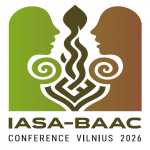Conclusion
Popular music in all its forms is a relatively new exercise compared with other archival endeavours and up to this point in time has not been taken too seriously, certainly in academic circles. It has been left to individuals or other interested parties such as broadcasting organisations or publishers to create any workable collections, normally for their own use. But it can be argued that this is an art form which has as much credibility as any other; which appeals to and involves a greater amount of people than most others, and which has a great influence on the entertainment world and the leisure activities of most of the general public. To ignore this mass of material because it may not live up to individuals’ intellectual expectations is a sterile attitude and to a great extent burying one’s head in the sand.
It is up to people such as librarians and archivists to reverse this trend and to preserve what in effect is a wealth of musical experience for posterity. A quotation from Noel Coward, one of the most prolific of English songwriters whose contribution to the field of popular song was enormous will provide an apt conclusion:
“In my early 20s and 30s it was from America that I gained my greatest impetus. In New York, they have always taken light music seriously. There, it is, as it should be, saluted as a specialised form of creative art, and is secure in its own right… Here in England there are few to write the music and fewer still to recognise when it is written”.
Happily nowadays recognition of popular music is no problem. However, those of us who are interested and involved are still fighting a battle to make academic and educational establishments give the recognition to popular or light music that it so richly deserves.
Leslie Wilson is the Librarian of the BBC Popular Music Library in England.
The paper was given as part of a session on the Selection of popular music at the IASA conference in Washington, 1983.


